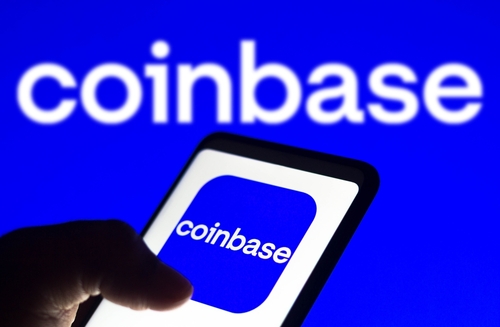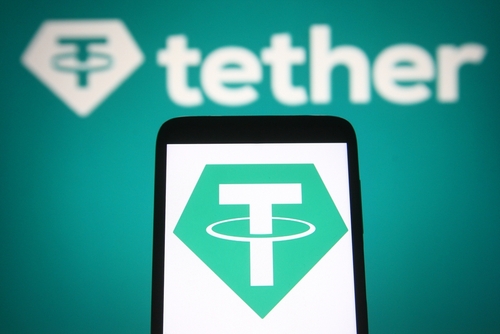Wirex Token (WXT) surges on partnerships and integrations ahead of WPAY launch

In the past month, WXT token has surged by more than 55%. At press time, Wirex Token (WXT) was trading at $0.008041. Investors are looking forward to the WPAY official launch; Wirex opened early access to WPay in January. Wirex Token (WXT) has experienced a significant surge in value fueled by strategic partnerships, integrations, and […]
Bitcoin (BTC) price prediction as it breaches $72k

Bitcoin price forecast points to a possible $82,000. Ten days remain to the much anticipated Bitcoin halving event. Kangamoon, a new meme coin, has raised over $4M in its ongoing presale taking advantage of the crypto hype created by Bitcoin’s price surge Bitcoin (BTC) has been making significant waves in the cryptocurrency market, with its […]
Dogwifhat (WIF) price forecast amid pullback as Algotech’s ALGT token presale nears $4M

Dogwifhat (WIF) price dips 14.35% to $3.31 in a day; however, still 51% higher than a month ago. WIF price is projected to surge to $4.2 if it holds the current support level. Algotech’s $ALGT presale raises $3.7M; token priced at 0.08 tether. Dogwifhat (WIF) has experienced a significant price pullback causing concern among investors. […]
Coinbase partners with Lightspark for Bitcoin Lightning Network integration

Coinbase’s partnership with Lightspark for Bitcoin Lightning Network integration enhances transaction efficiency. Lightspark’s advanced technology streamlines Lightning Network access, offering low-cost BTC transfers. The collaboration empowers Coinbase with reliable, scalable node infrastructure, driving global financial innovation. Coinbase, a leading cryptocurrency exchange, has announced a strategic partnership with Lightspark to integrate the Bitcoin Lightning Network. The […]
Nexo leads 35+ crypto giants in push for Bitcoin emoji
Nexo leads 35+ crypto giants in a push for a Bitcoin emoji. The ‘Bitcoin Deserves an Emoji’ movement gains traction globally. The movement has surpassed 10,000 endorsements. In a groundbreaking move, Nexo, alongside over 35 major crypto organizations, is spearheading a campaign to establish a Bitcoin emoji. This initiative aims to solidify Bitcoin’s cultural and […]
Tether now the seventh-largest Bitcoin (BTC) holder

Tether recently committed 15% of its net profit to Bitcoin investments. On March 31, 2024, Tether acquired an additional 8,888 BTC at $30,305 each bringing unrealized profit to $2.94B. Tether is now 7th largest holder of Bitcoin (BTC), with 75,354 BTC. Tether, the leading issuer of USDT, has emerged as the seventh-largest holder of Bitcoin […]
Bitfarms mines less BTC in March despite expanding its mining Fleet

Bitfarms mined 286 BTC in March, down from 300 in February. Bitfarms’ fleet upgrade aims for 21 EH/s and 21w/TH efficiency. Bitfarms sold 284 BTC increasing treasury holdings to 806 BTC. Bitfarms Ltd. (BITF), a prominent global Bitcoin mining company, experienced a slight dip in its Bitcoin (BTC) production for the month of March 2024, […]
here’s what’s driving the price rally

CORE DAO’s token, CORE, sees a 67% surge reaching $2.75. Several institutional investment funds have shown interest in CORE. Technical indicators signal a bullish trend for CORE, despite the high RSI suggesting potential overvaluation. The price of Core DAO’s native token, CORE, has experienced a staggering surge of over 200% within a week, capturing the […]
Kiyosaki questions Bitcoin’s legitimacy; this potential ‘Dogecoin Killer’ has ambitions to reach $500

Renowned investor Robert Kiyosaki, author of the mega-selling “Rich Dad Poor Dad,” has been a vocal advocate for Bitcoin for years. Recently, however, Kiyosaki’s stance seems to be wavering. While he still believes Bitcoin has potential as a hedge against inflation due to its finite supply, he’s questioning its legitimacy in a system he views […]
BITFLOKI TO BE LISTED ON MEXC EXCHANGE

PRESS RELEASE BY @BITFLOKI_IO #BITFLOKI HAS SOME COOOL UPDATES TO SHARE AS MEMECOIN SEASON IS HEATING UP Buy link – https://pancakeswap.finance/swap?outputCurrency=0x79CDc9cA057E16dFfd45BD803491f328f49e1762 Listing on 2024-03-30 14:00 (UTC), by MEXC Exchange, the $BFLOKI Token is gaining momentum among crypto MEME community. The project is creating substantial buzz, with several exciting exchange listings in the works. Announcement link: […]